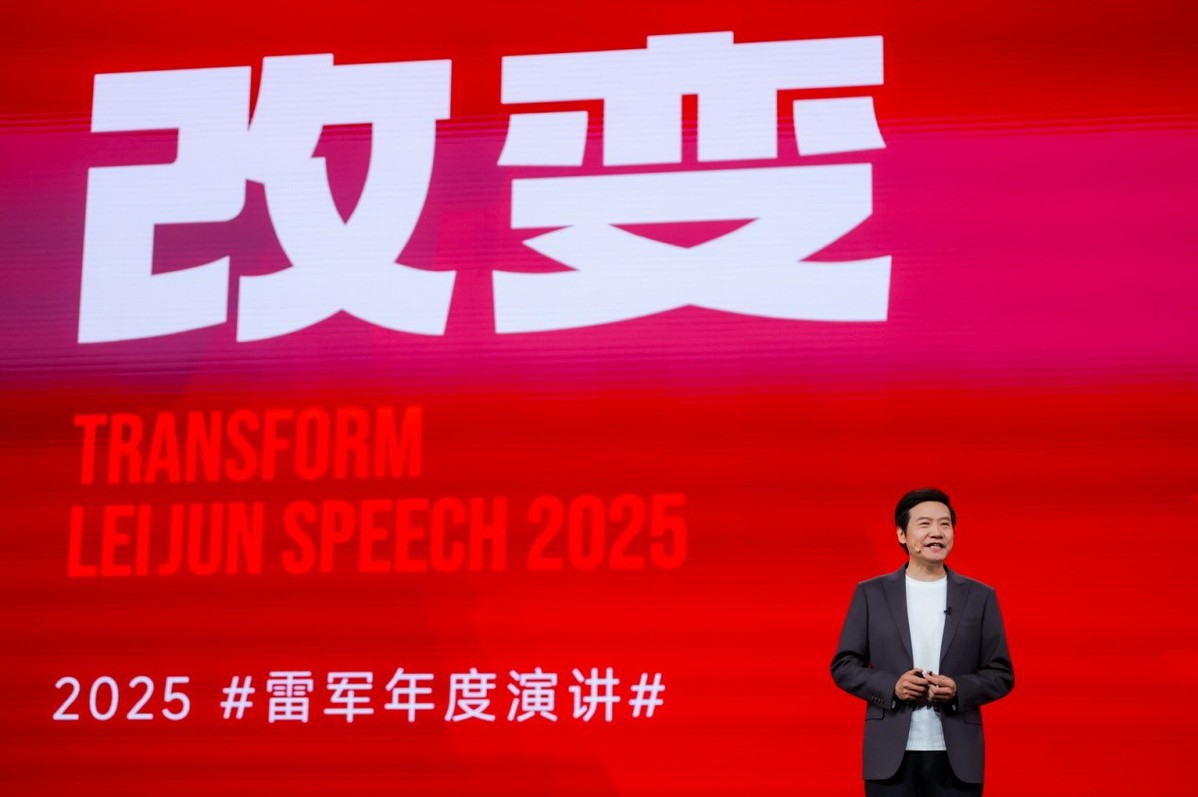Xiaomi marches ahead in high-end development


Chinese tech company Xiaomi Corp is stepping up push to promote the development of high-end products after making progress in smartphones and electric vehicles.
Lei Jun, founder, chairman, and CEO of Xiaomi, said in an interview with media, including China Daily, on Thursday night that the company's intensified focus on technology and its challenging push into the high-end market are yielding significant results, following a period of internal and external pressures five years ago.
Lei said that user criticism and internal anxiety half a decade ago prompted a fundamental strategic shift for Xiaomi, leading to the core principle of establishing the company through technology.
The company has exceeded its initial five-year R&D investment target of 100 billion yuan ($14 billion), having invested between 102 and 105 billion yuan. Emboldened by the returns, Xiaomi has committed to doubling down on innovation, unveiling a new five-year R&D plan of 200 billion yuan. The company's R&D spending in this year alone is expected to surpass 30 billion yuan.
These investments are not just numbers on paper. They have been translated into numerous leading technologies for Xiaomi, Lei said.
According to him, the persistence is showing tangible results. In smartphones, the Xiaomi 17 series have become a benchmark for its high-end offerings. The success extends to the automotive sector, where the average post-tax price of Xiaomi cars has reached 289,000 yuan, placing it in a similar price range as premium German brands. The high-end SU7 Ultra model, priced between 500,000 and 600,000 yuan, is demonstrating strong sales performance.
Perhaps more notably, close to half of all Xiaomi car users are female, a stark contrast to and a deliberate move away from its previous image as a "male-skewed geek brand" from five or six years ago.
This transformation underscores Xiaomi's successful rebranding and its growing appeal to a broader, more diverse consumer base as it solidifies its position in the premium technology market, Lei said.




































